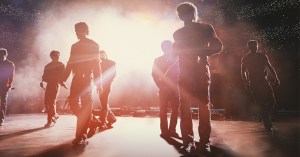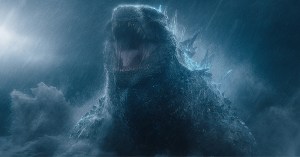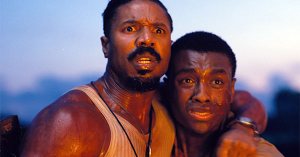Total Recall: Directors Who Made A Splash At Sundance
We look at 10 prominent filmmakers who got a big boost in Park City.
This week, the Sundance Film Festival is in full swing. With that in mind, we decided to take a look at some of the prominent directors who’ve gotten some major breaks at America’s most important showcase for independent film. The snowy climes of Park City, UT, may seem to be an odd incubator for independent film, but Robert Redford’s brainchild remains one of the key places to get a first look at some of film’s most important voices.
The Coen brothers
The mid-1980s were a time of high-concept action pictures; “independent film” was practically a dirty word in the movie biz. But once in a while, a specialty picture would come along and announce that its makers were talents ready for the big time. Blood Simple was such a film; Joel and Ethan Coen’s debut was a highly original noir/crime thriller that proved there was a market for strong, original material from the underground, and took home the Grand Jury Prize at the 1985 Utah/U.S. Film Festival (rechristened Sundance in 1991), a key early accolade in the brothers’ illustrious career.
Jim Jarmusch
If the Coen brothers’ twisted take on crime cinema proved that indies could breathe new life into old genres, Jim Jarmusch’s Stranger Than Paradise showed that a film with a low budget could still aspire to the realm of high art. Stranger Than Paradise tells the deceptively simple tale of two New York scenesters and a young Hungarian woman on vacation; though this minimalist black and white film utilized single, static shots, and had the feel of a European arthouse flick, the only thing dry about Stranger Than Paradise was its wit. In addition to picking up a Special Jury Prize at Sundance, it inspired a number of independently-minded directors, and kicked off Jarmusch’s eccentric career; even the director’s relatively mainstream fare (Ghost Dog: The Way of the Samurai, Broken Flowers) was light years away from conventional.
Steven Soderbergh
By the late-1980s, Sundance had earned a reputation as a showcase for bright, original talent, but few of its entries entered the national consciousness. Steven Soderbergh’s sex, lies, and videotape changed that. Set in Baton Rouge, LA, the film details the troubled marriage of an upscale couple (Peter Gallagher and Andie MacDowell) — a bond that becomes more tenuous when an uninhibited old friend (James Spader) reenters their lives. sex, lies, and videotape won Sundance’s first Audience Award, and, with a big push from Miramax, became one of indie film’s first breakout hits. Ironically, though the film helped to put both Soderbergh and Sundance on the map, the director would have a falling out with Robert Redford; Soderbergh is now associated with Slamdance, another Park City festival that screens films by first-time filmmakers.
Richard Linklater
Many budding artists have a revelatory “I can do this too” moment; for Kevin Smith, and lots of other indie filmmakers, Slacker was the film that inspired them to make a movie. Richard Linklater’s second film was decidedly short on plot, but it resoundingly proved that long stretches of conversation could be thrilling; Slacker‘s collection of misfits and eccentrics proved irresistible to a new generation of independent directors — and freethinkers. Nominated for a Grand Jury Prize at Sundance in 1991, Slacker was a calling-card for one of American film’s most interesting voices — and the result has been such faves as School of Rock, Dazed and Confused, and Before Sunrise.
Quentin Tarantino
In its early years, Sundance was known for intimate character studies and quirky tales of Americana; profane, gun-toting diamond thieves weren’t generally considered acceptable fodder. So when Quentin Tarantino’s Reservoir Dogs screened at the 1992 festival, it elicited some particularly strong reactions; some praised the director as a brilliant wunderkind, while others were repulsed by the film’s (sometimes gleeful) violence. The mixed reaction was ironic, since Reservoir Dogs was a Sundance film through-and through; Tarantino had work shopped the film at the institute’s labs. The result was a movie that helped to expand the definition of what an independent film could be.
Robert Rodriguez
Robert Rodriguez epitomizes the Sundance success story. His first feature, El Mariachi, was shot for an unheard-of $7,000 (Rodriguez helped finance the movie by participating in an experimental test for a cholesterol drug), and it continues to embody the festival’s against-all-odds spirit. Rodriguez has maintained an independent streak ever since; even his high-profile projects, like Once Upon a Time in Mexico and Sin City, were largely shot in his home base of Austin, and, like El Mariachi, have an infectious energy and remarkable look and feel despite costing much less than most films made in Hollywood.
Bryan Singer
The 1993 Sundance Film Festival was a heady time for future X-Men and Superman Returns director Bryan Singer. Not only did he pick up the Grand Jury Prize for his low-budget thriller Public Access, but the germ for his breakout hit, The Usual Suspects, originated when he and co-scripter Christopher McQuarrie discussed McQuarrie’s loose idea for the story. Public Access is the tale of a drifter who decides to host a cable show in the seemingly idyllic town of Brewster; the show quickly becomes a one-stop shop for citizen discontent, and it becomes clear there are sinister undercurrents just below the surface.
Kevin Smith
The world of indie film is full of outsized personalities, but few made a bigger splash on the scene than Kevin Smith. His debut, the micro-budgeted Clerks, was filmed at the convenience store where Smith toiled, and he captured the speech patterns and daily rhythms of over-educated, underemployed slackers with remarkable clarity. Smith picked up a Filmmakers Trophy for his effort — pretty impressive for a spiritedly profane black and white feature financed by maxing out his credit cards.
Wes Anderson
The Sundance shorts program has spawned a number of talented filmmakers; few, however, have made as big a splash as Wes Anderson. Bottle Rocket began life as a 13-minute short, and follows Dignan (Owen Wilson) and Anthony (Luke Wilson) as they execute a not-so-daring robbery. The short caught the attention of James L. Brooks, who discovered that Owen Wilson and Anderson had written the script for a feature. Though the full-length version would not screen at Sundance (to Anderson’s disappointment), it proved to be a cult favorite, and set the tone for Anderson’s eccentric later work, most notably Rushmore and The Royal Tenenbaums.
Christopher Nolan
Park City has been good to The Dark Knight‘s helmer. His first feature, Following, was an award-winner at Slamdance in 1999. Two years later, with Memento, Nolan proved he was ready for the big time. This non-linear tale of a man searching for his wife’s killers while battling a strange type of amnesia picked up a Waldo Salt Screenwriting Award at Sundance in 2001. However, despite warm feelings, a number of distributors passed on the film, concerned it was too confusing to be embraced by audiences. The film’s production company, Newmarket, decided to distribute the film itself, and the result was an immediate cult hit — one that generated feverish debate and made Nolan a director to watch.
Check out the rest of our Total Recall archives here.
Finally, here’s an excerpt from a documentary about the Sundance Labs, which has cultivated a number of innovative filmmakers:













